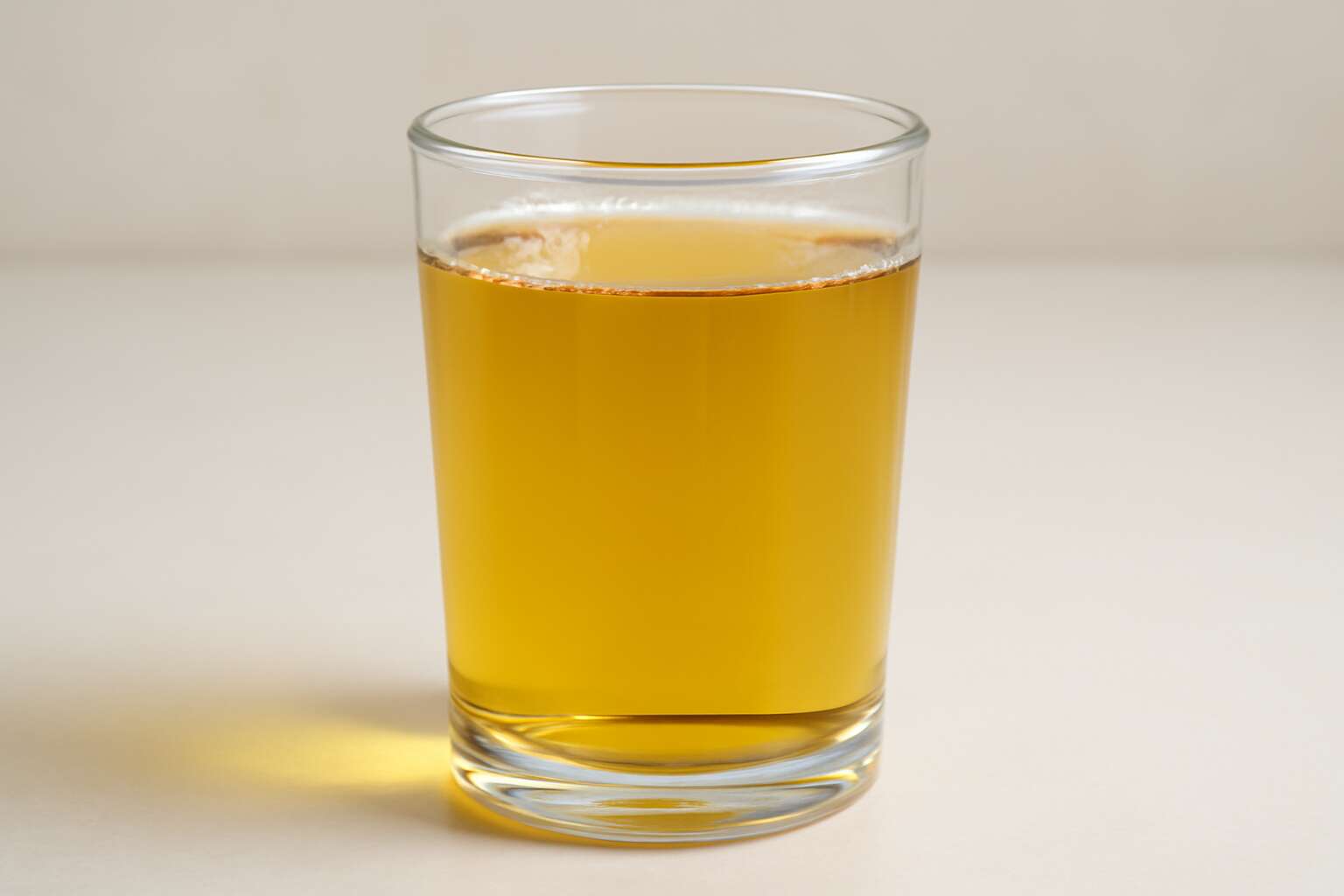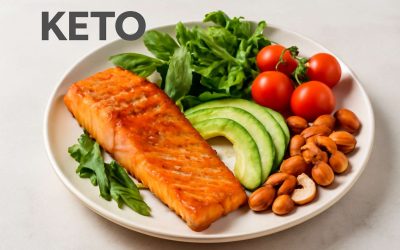Understanding the Causes of Urine Odor on a Low Carb Diet
The Role of Ketosis and Ketone Production
When embarking on a low carb diet, many are surprised to notice a distinct change in their urine smell. This phenomenon is closely tied to the body’s shift into a state called ketosis, a metabolic process where fat becomes the primary fuel source instead of carbohydrates. As the body produces ketones—specifically acetoacetate and acetone—these compounds are excreted through urine, often resulting in a characteristic, sometimes pungent, low carb diet urine smell that can catch you off guard.
Ketone production is a natural response to carbohydrate restriction, but it also influences how our bodies eliminate waste. The presence of acetone, a volatile ketone, is primarily responsible for the distinctive odor. For those observing their urine closely, it’s a vivid reminder that their body is actively burning fat for energy—an essential aspect of the low carb lifestyle. Interestingly, the strength of this smell can vary based on hydration levels, diet composition, and individual metabolism. Some may find it faint, while others experience a more pronounced scent, adding a layer of intrigue to the journey into ketosis.
How Fat Burning Influences Urine Composition
When the body switches to burning fat instead of carbohydrates, it’s not just your energy levels that change. The shift into ketosis alters urine composition significantly, often leading to a noticeable low carb diet urine smell. This isn’t just an odd side effect; it’s a direct indicator that your body is producing ketones like acetoacetate and acetone, which are expelled through urine.
Understanding why this happens involves looking at how fat burning influences waste elimination. As fat is broken down for energy, ketones are generated as by-products. These compounds, especially acetone, are volatile and can cause that distinctive, sometimes pungent, odour. Variations in the intensity of this smell can be attributed to hydration levels, dietary choices, and individual differences in metabolism.
Interestingly, some individuals may notice a faint scent, while others experience a strong, almost noticeable odour. This variation isn’t unusual and offers a glimpse into how uniquely each body responds to the low carb diet urine smell. For those keen on understanding their body’s responses, tracking these changes can be quite revealing—highlighting how deeply diet influences bodily functions.
Impact of Increased Protein Intake on Urine Odor
When following a low carb diet, many people notice a distinct change in urine odor. This shift often becomes more pronounced with increased protein intake. The reason? Protein metabolism produces nitrogen waste, which the body excretes through urine. As protein consumption rises, so does the amount of waste, intensifying the low carb diet urine smell.
In some cases, this can lead to a more pungent aroma, especially if hydration levels are low. To better understand this process, consider that the body may process excess protein into urea and other waste products, which can alter urine composition.
- High protein intake
- Inadequate hydration
all contribute to this change. Recognizing how increased protein affects urine odor helps individuals gauge their diet and hydration habits on a low carb plan.
Dehydration and Its Effect on Urine Smell
In the labyrinth of a low carb diet, one curious phenomenon often emerges: a distinctive change in urine odor. Among the myriad factors influencing this, dehydration stands out as a silent culprit, amplifying the low carb diet urine smell to almost theatrical proportions. When the body lacks sufficient water, waste products like urea and ketones become more concentrated, turning urine into a potent signal of metabolic shifts. This intensified aroma is not merely an olfactory quirk but a reflection of the body’s intricate balancing act.
To truly grasp this, consider the role of hydration—an essential yet often overlooked element. Inadequate water intake causes the urine to become more pungent and concentrated, making the low carb diet urine smell more noticeable. For those navigating a low carb lifestyle, understanding this connection underscores the importance of maintaining proper hydration. After all, a well-hydrated body can better dilute those waste products, softening the sometimes startling scent that accompanies ketosis and low carb diet urine smell.
Common Symptoms and Variations of Urine Smell During Low Carb Regimens
Identifying Ketone-Related Urine Odor
During a low carb diet, many individuals notice an unusual shift in their urine smell—an unmistakable sign that the body is adjusting to a new metabolic state. This phenomenon, often linked to the production of ketones, can manifest as a faintly fruity or nail polish remover-like odor. Such variations are not only common but can also serve as subtle indicators of ketosis in progress.
Some individuals report that their urine takes on a sharper, more pungent scent, especially during the initial phases of a low carb diet urine smell. These olfactory changes are typically transient but can be quite distinctive. For those with heightened olfactory sensitivity, the smell might feel overwhelming at times.
In certain cases, the low carb diet urine smell may fluctuate in intensity and character, influenced by dehydration levels, protein intake, and overall hydration status. Recognizing these variations can help dieters better understand what their body is experiencing—a delicate dance of metabolic adaptation that leaves behind a telltale scent in their urine.
Differentiating Between Normal and Concerning Odors
Urine odor during a low carb diet can vary widely from person to person, making it important to recognize what’s normal and what might signal a concern. Some individuals notice a mild, fruity scent, characteristic of ketone production, which is a sign of effective ketosis. Others might find their urine smell sharper or more pungent, especially during the early stages of a low carb diet. These changes often reflect the body’s transition to fat-burning mode but can also be affected by hydration levels and dietary choices.
Common symptoms of low carb diet urine smell include a persistent scent that resembles nail polish remover or acetone. However, if the odor becomes overwhelmingly strong, foul, or accompanied by symptoms like dizziness or dehydration, it may indicate an imbalance. Recognizing these variations is key—while some odor shifts are normal, others could suggest dehydration or other issues needing attention.
- If the urine smell is faint and fruity, it usually signals ketosis is underway and is generally harmless.
- A sudden, intense, or foul odor might be a sign of dehydration or other metabolic disturbances that warrant further monitoring.
Understanding these subtle differences helps differentiate between normal low carb diet urine smell variations and signs that require medical consultation. Staying attuned to your body’s signals can make all the difference on your low carb journey.
Changes Over Time and Adaptation
As the body embarks on the low carb diet urine smell journey, it often paints a vivid olfactory landscape—shifting from subtle hints to more pronounced notes. Initially, many notice a faint, fruity aroma—an aromatic whisper that signals the body’s sweet surrender to ketosis, a testament to fat’s fiery burn. Over time, this scent may intensify, becoming sharper or more pungent, reflecting the evolving metabolic dance within. These fluctuations are natural; the body’s adaptation process is akin to a symphony, with each note signaling progress or pause.
During this period of transformation, the urine smell can vary significantly—sometimes a delicate, fleeting fragrance, other times a more stubborn, acetone-laden aroma. Recognizing these changes is crucial, as they often mirror hydration levels or dietary adjustments. For instance, a persistent, foul odor might hint at dehydration or an imbalance that warrants attention. Conversely, a faint, fruity scent typically indicates that ketosis is well underway, a sign that your low carb diet urine smell is aligning with expected metabolic shifts.
- Normal variations such as mild fruity or sharp notes are part of the body’s adaptation to low carb dieting.
- Sudden intensities or foul odors could suggest dehydration, prompting a closer look at fluid intake.
- Persistent or overwhelming smells may also reflect metabolic disturbances requiring medical oversight.
Understanding these subtle variations in the low carb diet urine smell transforms what might seem an odorous enigma into a meaningful indicator of your health’s journey. Each scent, a whisper from within, guides you through the intricate tapestry of ketosis, fat burning, and bodily resilience. Embrace the olfactory symphony—each note a testament to the body’s remarkable agility in adapting to a new metabolic tempo.
Factors That Exacerbate or Reduce Urine Odor on a Low Carb Diet
Hydration and Fluid Intake
In the intricate dance of dietary reform, hydration often takes center stage—yet its influence on low carb diet urine smell is frequently underestimated. When embarking on a low carb journey, especially in South Africa’s arid climate, fluid intake becomes a silent hero or villain. Too little water, and the urine odor may intensify, turning into a potent reminder of dehydration’s tenacious grip. Conversely, adequate hydration can dilute the concentration of ketones and other metabolic byproducts, softening that telltale scent.
To navigate this aromatic landscape, consider this: the amount of water consumed directly impacts urine smell. An insufficient intake can lead to concentrated urine, amplifying the unmistakable aroma associated with ketosis. On the other hand, maintaining proper hydration—about 2 to 3 liters daily—can help manage the intensity of low carb diet urine smell. Some experts even suggest that adding electrolytes or natural fluids like coconut water might further ease the olfactory burden, especially during the initial phases of ketosis.
Diet Composition and Food Choices
When it comes to low carb diet urine smell, certain food choices can turn your bathroom visits into an olfactory adventure—sometimes more pungent than a Durban spice market! The composition of your diet plays a starring role in how your urine smells, with some foods amplifying the aroma while others help keep it in check. For example, high intake of sulfur-rich foods like eggs, broccoli, and cauliflower can intensify that signature keto scent, making it smell like a chemist’s lab explosion. Conversely, incorporating more hydrating vegetables and natural fluids like coconut water can help dilute those odorous ketones, softening the scent’s impact.
- Excessive protein consumption, especially from processed meats or cheese, can also exacerbate the low carb diet urine smell, adding a sharper, more ammonia-like undertone.
- On the flip side, carefully balancing fat intake and choosing nutrient-dense, low-odor foods can help reduce the olfactory assault.
Ultimately, your food choices are the puppeteers of the aromatic show. By paying attention to what you eat—and how it influences your urine’s scent—you can navigate the fragrant minefield of a low carb diet with a touch more finesse and a lot less surprise in the bathroom!
Supplements and Vitamins
Supplements and vitamins can subtly influence the aromatic landscape of your urine on a low carb diet. While many turn to these additions to enhance health, some may inadvertently intensify that distinctive low carb diet urine smell. For instance, high doses of B vitamins, especially B6 and B12, are notorious for altering urine odor, sometimes giving it a more pungent or metallic edge. Similarly, certain amino acid supplements, like taurine or cysteine, can amplify the chemist’s lab scent that often accompanies ketosis.
Conversely, some supplements may help mitigate this issue. Magnesium and electrolytes, when taken in moderation, support hydration and balance, easing the concentration of odorous ketones. Additionally, natural diuretics such as dandelion root or herbal teas can promote fluid turnover, diluting the urine’s scent. For those committed to managing the low carb diet urine smell, it’s wise to be selective with supplement choices, understanding that not all enhancements are created equal in the symphony of metabolic fragrance.
Lifestyle and Physical Activity
Factors influencing the intensity of low carb diet urine smell are often overlooked, yet they play a crucial role in your metabolic journey. Physical activity, for example, can either exacerbate or mitigate the odor. Vigorous exercise increases sweat and fluid loss, which can concentrate ketones and intensify that unmistakable low carb diet urine smell. Conversely, moderate movement boosts circulation and promotes better hydration, helping to dilute odorous compounds.
Hydration remains a key player. Drinking ample water helps flush out excess ketones and reduces the concentration of compounds responsible for that pungent aroma. In addition, lifestyle choices such as the timing of eating and the types of foods consumed can influence urine scent. For instance, consuming fibrous vegetables and natural diuretics like herbal teas can promote fluid turnover, naturally reducing the low carb diet urine smell. Balancing activity levels and staying well-hydrated creates a harmonious environment where ketone-related odors are kept in check, making the low carb journey more comfortable and sustainable.
Tips to Manage and Minimize Unpleasant Urine Smell
Staying Well-Hydrated
Managing the distinct urine smell associated with a low carb diet requires more than just awareness; it calls for deliberate hydration strategies. When your body shifts into ketosis, your kidneys work overtime to eliminate excess ketones, which often results in that characteristic low carb diet urine smell. Without proper fluid intake, this odor can become more pungent and persistent. Staying well-hydrated dilutes urine, reducing the concentration of waste products and helping to control the smell. It’s a simple yet effective way to manage the body’s natural response to a low carb diet.
In addition to drinking enough water, consider incorporating electrolyte-rich fluids or herbal teas to support your overall hydration. Some people find that balancing electrolytes helps minimize the intensity of the low carb diet urine smell, especially during the initial transition. Remember, consistency is key—regular hydration not only improves your comfort but also aids your body’s ability to adapt to dietary changes, making the low carb diet urine smell less noticeable over time. Keeping a close eye on your fluid intake might just be the most straightforward way to stay comfortable and keep the odor manageable.
Balancing Macronutrients
Managing the pungent low carb diet urine smell requires more than just hydration; it’s about balancing macronutrients with precision. When your body enters ketosis, an imbalance—particularly excessive protein—can intensify that unmistakable odor. To keep it in check, consider adjusting your intake of fats, proteins, and carbs carefully. A well-calibrated macronutrient ratio not only supports ketosis but also minimizes the production of excess ketones that contribute to the smell.
One effective approach is to prioritize nutrient-dense, low-carb foods that promote a steady metabolic state. Incorporate healthy fats and moderate protein, avoiding sudden spikes that can lead to unpleasant urine odor. For an extra edge, some practitioners recommend electrolyte-rich fluids or herbal teas, which can help balance the body’s chemistry and diminish the scent. Remember, the key lies in consistency—over time, proper macronutrient management can significantly reduce the intensity of the low carb diet urine smell, turning a potential problem into a manageable aspect of your health journey!
Incorporating Specific Foods to Neutralize Odor
While navigating the labyrinth of a low carb diet urine smell, certain foods can act as surprising allies in neutralizing that persistent odor. Incorporating specific vegetables and herbs—like parsley, cilantro, and mint—can bring a fresh, aromatic counterpoint to the often pungent scent. These natural elements contain compounds that help detoxify the body and dilute the concentration of ketones, which are primarily responsible for the smell.
Some enthusiasts swear by adding lemon or lime to their water, as the citric acid can help break down odor-causing compounds. Additionally, integrating fibrous, low-carb vegetables such as zucchini or cauliflower supports digestion and promotes the elimination of excess toxins. An interesting approach is to include herbal teas—like dandelion or ginger—which are known for their detoxifying properties and ability to diminish unpleasant urine scent.
- Stay consistent with your hydration, as water helps flush out ketones and reduces their concentration in urine.
- Opt for nutrient-dense, low-carb foods that support metabolic balance and minimize excess ketone production.
By carefully selecting foods and beverages with natural deodorizing properties, you can effectively manage and minimize that unmistakable low carb diet urine smell. The secret lies in the mindful integration of these elements into your daily routine, turning what might seem like an inevitable side effect into a manageable part of your health journey.
Maintaining Good Hydration Habits
Maintaining good hydration habits is fundamental when managing the low carb diet urine smell. Water acts as a powerful detoxifier, diluting ketones and flushing them out of your system before they can cause that pungent odor. Drinking enough water not only supports kidney function but also helps balance the body’s internal environment, reducing the concentration of odor-causing compounds in urine.
To maximize this effect, consider incorporating naturally flavored water with lemon or lime—these citric fruits can further assist in breaking down ketone molecules, diminishing their intensity. Staying consistently well-hydrated makes a noticeable difference in minimizing the low carb diet urine smell, turning what once seemed unavoidable into a manageable aspect of your health journey. Remember, hydration isn’t just about quantity; it’s about making your body an efficient, odor-free machine.
Monitoring Your Body’s Response
Monitoring your body’s response to a low carb diet urine smell is akin to reading a delicate map etched in your own physiology. As your body adjusts to ketosis, subtle signals emerge—an aroma that whispers of fat’s fiery burn. Recognizing these signs can be transformative, turning an unwelcome odor into a guiding beacon of metabolic harmony.
To manage this, attention to fluid intake becomes paramount. Drinking water infused with lemon or lime not only refreshes but actively works to neutralize the pungent scent. These citrus allies help break down ketone molecules, diminishing their olfactory impact.
Paying close attention to your body’s reactions offers invaluable insight—if the smell persists or intensifies, it may signal dehydration or dietary imbalances. Embrace this awareness, and adjust your hydration and food choices accordingly, transforming an unavoidable facet of a low carb diet urine smell into a manageable, even enlightening, aspect of your health journey.
When to Consult a Healthcare Professional
Signs of Infection or Other Health Concerns
While the allure of a low carb diet urine smell might evoke a certain curiosity, it is crucial to recognize when this aromatic change signals more than just dietary adaptation. Persistent, foul, or unusual odors in urine, especially if accompanied by symptoms like fever, chills, or pain, should raise a red flag. These signs could indicate an underlying infection or other health concern requiring prompt medical attention.
Ignoring these subtle clues can lead to complications. If you notice a significant shift in urine smell that does not resolve after hydration or dietary adjustments, it is wise to consult a healthcare professional. They may perform tests to identify potential infections, kidney issues, or other conditions that could be masquerading behind the distinctive aroma of a low carb diet urine smell.
Remember, your body’s signals are a sophisticated language—sometimes, a change in urine odor is merely a fleeting phenomenon; other times, it’s a cry for help. Being vigilant and knowing when to seek medical advice can make all the difference in maintaining optimal health on your dietary journey.
Unexpected or Persistent Unpleasant Odors
While a change in urine smell on a low carb diet is often a benign sign of ketosis, there are moments when it signals something more urgent. Unexpected or persistent unpleasant odors can be a red flag, especially if accompanied by symptoms like fever, chills, or abdominal pain. Such indicators whisper warnings that your body may be grappling with an underlying infection or other health concern.
Trust your body’s signals—these subtle clues can be vital. If your low carb diet urine smell lingers despite increased hydration or dietary tweaks, consulting a healthcare professional is a wise decision. They might perform diagnostic tests to uncover issues like urinary tract infections or kidney problems that could be masquerading behind that distinctive aroma.
In these instances, an ordered approach can be invaluable:
- Persistent foul odor
- Unusual color changes
- Associated discomfort or systemic symptoms
should prompt immediate medical attention. Remember, while the aroma of urine can fluctuate with diet, a continuous or worsening scent warrants professional evaluation—your health is too precious to overlook.
Additional Symptoms to Watch For
When the aroma of your urine takes on an unusually pungent or persistent tone, it’s a signal worth heeding—especially if it’s accompanied by additional symptoms. Recognizing when to consult a healthcare professional can be the difference between a manageable imbalance and a serious health concern. If your low carb diet urine smell lingers despite efforts to hydrate or adjust your diet, it’s time to listen closely to your body’s whispers.
Additional symptoms such as fever, chills, lower abdominal pain, or a burning sensation during urination are red flags that should not be ignored. These signs often point towards underlying issues like urinary tract infections or kidney problems. In such cases, seeking medical advice promptly ensures timely diagnosis and treatment. Remember, persistent or foul odors—especially when coupled with systemic symptoms—are not just oddities but vital clues that your health requires professional attention.
Be vigilant for other indicators such as unusual urine color changes or systemic discomfort. If these symptoms appear, it’s advisable to consult a healthcare professional without delay. Early intervention can prevent complications and restore your body’s harmony. Trust in the signals from your body—your health’s silent messenger—guides you through the subtle signs that something may be amiss in your low carb diet journey.




0 Comments